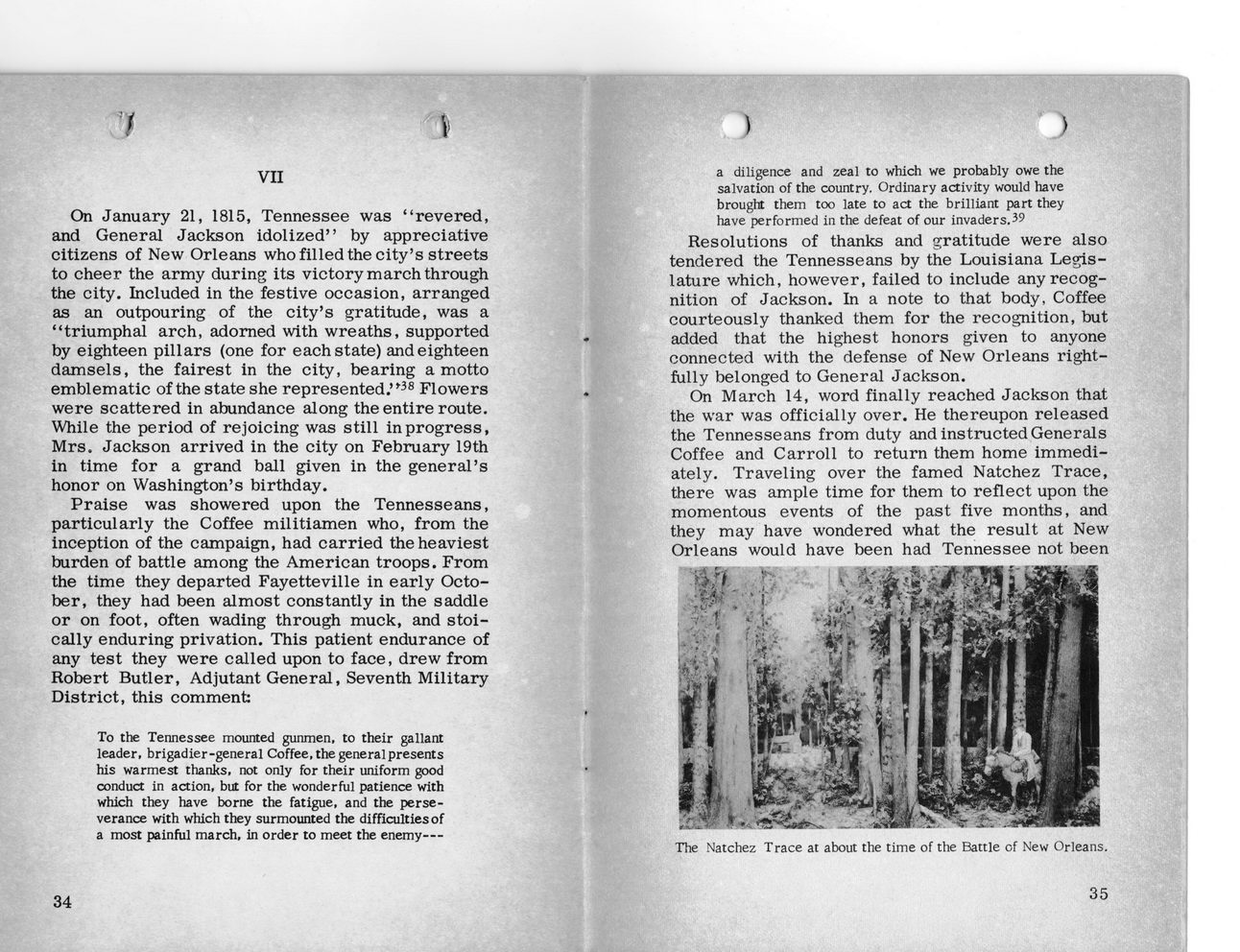This text was obtained via automated optical character recognition.
It has not been edited and may therefore contain several errors.
7 VII On January 21, 1815, Tennessee was ?revered, and General Jackson idolized? by appreciative citizens of New Orleans who filled the city?s streets to cheer the army during its victory march through the city. Included in the festive occasion, arranged as an outpouring of the city?s gratitude, was a ?triumphal arch, adorned with wreaths, supported by eighteen pillars (one for each state) and eighteen damsels, the fairest in the city, bearing a motto emblematic of the state she represented.?*38 Flowers were scattered in abundance along the entire route. While the period of rejoicing was still in progress, Mrs. Jackson arrived in the city on February 19th in time for a grand ball given in the general?s honor on Washington?s birthday. Praise was showered upon the Tennesseans, particularly the Coffee militiamen who, from the inception of the campaign, had carried the heaviest burden of battle among the American troops. From the time they departed Fayetteville in early October, they had been almost constantly in the saddle or on foot, often wading through muck, and stoically enduring privation. This patient endurance of any test they were called upon to face, drew from Robert Butler, Adjutant General, Seventh Military District, this comment: To the Tennessee mounted gunmen, to their gallant leader, brigadier-general Coffee, the general presents his warmest thanks, not only for their uniform good conduct in action, but for the wonderful patience with which they have borne the fatigue, and the perseverance with which they surmounted the difficulties of a most painful march, in order to meet the enemy? 34 ) ) a diligence and zeal to which we probably owe the salvation of the country. Ordinary activity would have brought them too late to act the brilliant part they have performed in the defeat of our invaders.39 Resolutions of thanks and gratitude were also tendered the Tennesseans by the Louisiana Legislature which, however, failed to include any recognition of Jackson. In a note to that body, Coffee courteously thanked them for the recognition, but added that the highest honors given to anyone connected with the defense of New Orleans rightfully belonged to General Jackson. On March 14, word finally reached Jackson that the war was officially over. He thereupon released the Tennesseans from duty and instructed Generals Coffee and Carroll to return them home immediately. Traveling over the famed Natchez Trace, there was ample time for them to reflect upon the momentous events of the past five months, and they may have wondered what the result at New Orleans would have been had Tennessee not been The Natchez Trace at about the time of the Battle of New Orleans. 35

Battle of 1814 35